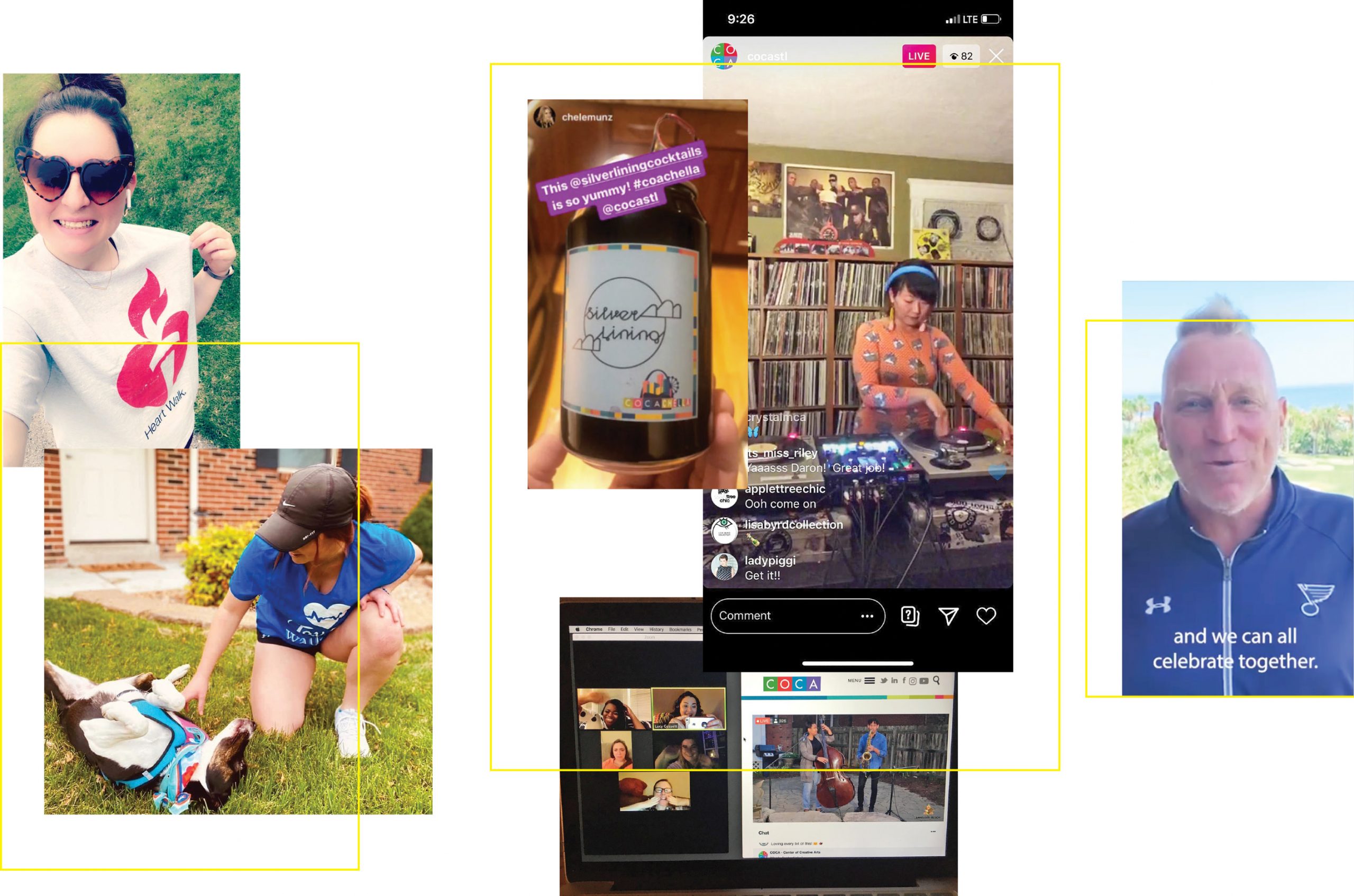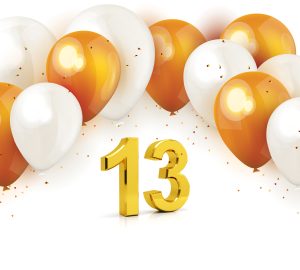Challenging times often bring out the best in people. This pandemic has been no exception, with St. Louisans rallying to support each other and the nonprofits that serve our city. But COVID-19 also has brought unique challenges to those organizations. We reached out to three local nonprofits to learn about the roadblocks the pandemic has presented and see how they got creative to fundraise.
coca
Recently, COCA celebrated the completion of its Create Our Future campaign, which raised $49 million to support the construction of the Ferring East Wing and to fund scholarships, support services and educational programming. This year also was meant to mark the return of its signature fundraising event, COCACabana, to its own campus in April. When the pandemic struck in March, the event quickly had to be reorganized virtually. “Being creative is what we do every day, and we just ended up having to do it a little more,” says Virigina Howell, director of marketing and sales.
The event was themed COCAchella and was planned to feature live performances from local musicians. To replicate the experience virtually, COCA filmed and streamed the artists along with performances from its students. It also offered the option of a catered meal from Butler’s Pantry that was delivered to guests’ homes. “We had 1,700 people tune in,” Howell notes. “The support of our donors and sponsors really made the event possible. It was COCA creativity combined with the community.”
That creative approach to problem-solving has allowed COCA to continue bringing its services to St. Louis. In July, it held an online summer camp. In the fall, it plans to offer both on-site and virtual classes along with tours of the new facilities. “We want to ensure that this is a welcoming and inclusive space,” executive director Kelly Pollock says. “Somewhere we can tell the stories that need to be told, develop voices that need to be heard, connect people in more meaningful ways and make art that feeds our community’s spirit and soul.”
american heart association
The pandemic has made the American Heart Association’s (AHA) mission even more critical. “With COVID-19, there is a domino effect,” executive director Jennifer Jaeger says. “It has the potential to impact people’s health and wellbeing for years to come.” She notes that with heart attacks and strokes, people are now less likely to call 911 when experiencing symptoms because they’re afraid to go to the hospital. This makes recovery more difficult and increases patient deaths. “It’s more important than ever that we keep educating the public,” she adds.
In May, the nonprofit held its annual Metro St. Louis Heart Walk, but the event looked very different thanks to social distancing. It was held virtually with people walking on their own and raising money using an app. Jaeger says one of the first challenges was figuring out how to engage workplaces. “Many businesses create teams for the event, but they were working remotely,” she explains. The AHA provided online learning resources about staying active while at home and taking care of mental health. It also created videos promoting the walk, and supporters stepped up with virtual fundraising on Facebook, Instagram and Zoom.
“Social media engagement was 10 times more than for previous walks,” Jaeger says. “People kept participating even after the official day of the event passed.” She adds this year’s experience taught the AHA to be more innovative when it comes to planning. It also learned to expand events to be more inclusive through virtual tools. “When making a pivot like this, you can feel like you’re burdening your supporters,” she notes. “But I saw that overwhelmingly, people just want to help.”
central institute for the deaf
Like any other school, Central Institute for the Deaf (CID) made the transition to virtual classes this spring. Accommodating the unique needs of its students made the switch extra difficult. “For children who are deaf and hard of hearing, using Zoom and other software with a hearing aid or cochlear implant is a challenge,” executive director Robin Feder says. Another challenge was figuring out how to perform maintenance on cochlear implants and hearing aids from a distance. Its audiologists video chatted with parents initially and then started offering curbside services.
CID also had to make arrangements for its annual gala, CID Out Loud! Instead of creating a single virtual event, the school decided to offer five days of auctions and programming to promote its mission and services. “Each day, we sent out another video showcasing our students and their success,” Feder explains. “We also had a special guest appearance from former Blues player Brett Hull, which many guests were thrilled about.” The event included an auction, wine pull, raffle and paddle raise.
Feder says the innovation CID was forced to do will benefit the school. From helping instruct parents over Zoom to planning an entirely virtual event, the pandemic has been a learning experience. Next spring, she notes that the school hopes to apply some of those lessons in a hybrid event, offering both in-person and virtual components. “We’re very grateful for the support CID Out Loud! received this year,” Feder notes. “The funds will help families access education regardless of their ability to pay tuition.”








